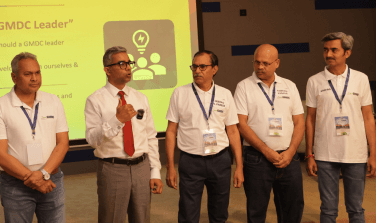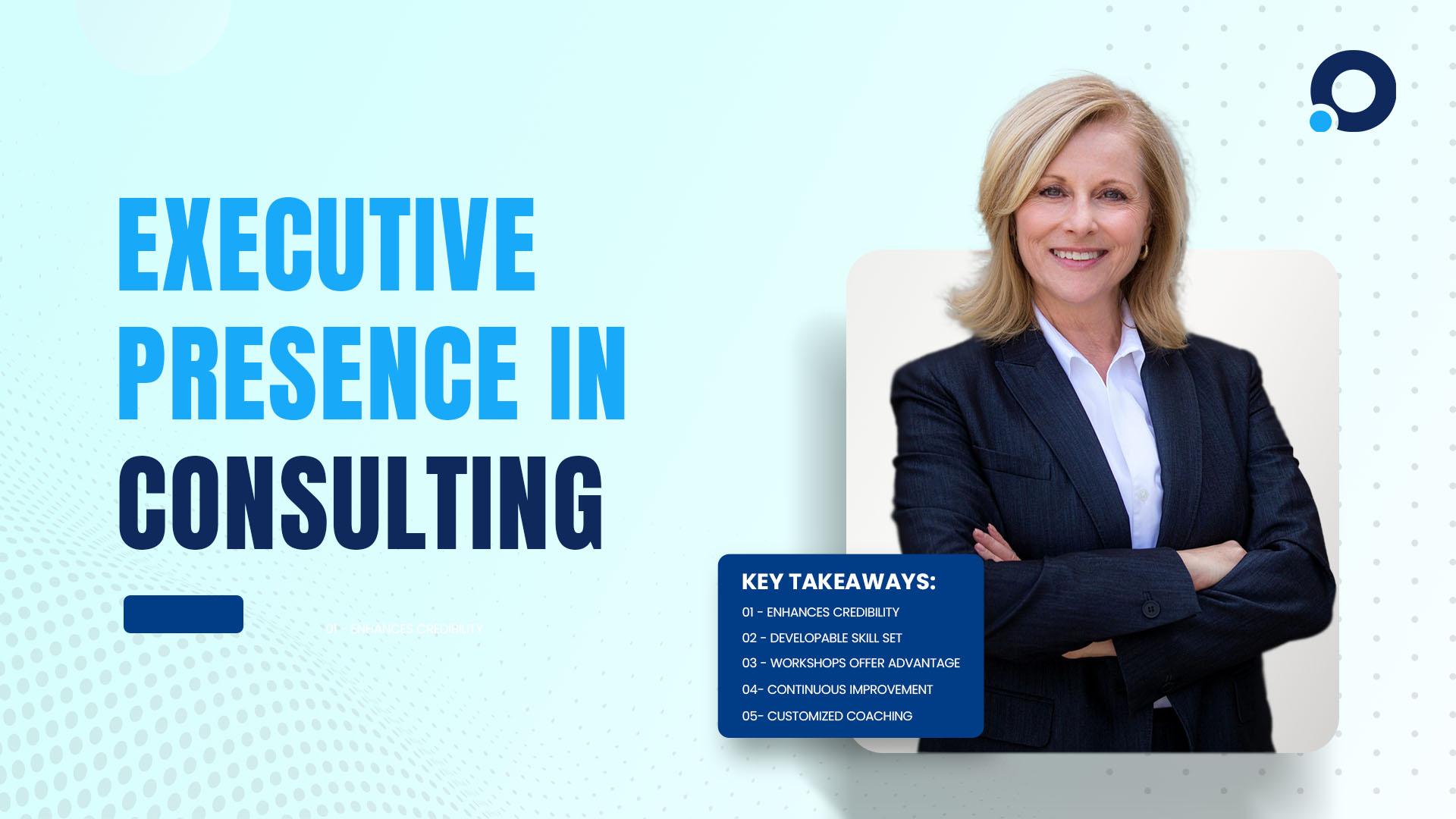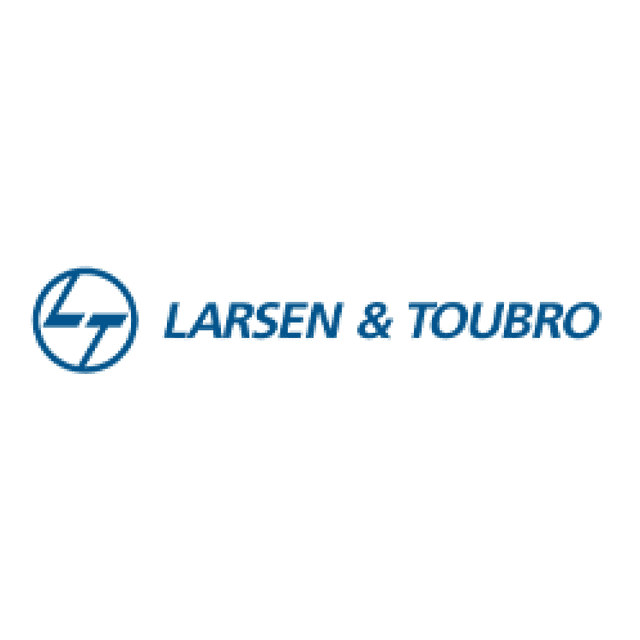Did you know that executive presence accounts for 26% of what it takes to get promoted? In the highly competitive world of consulting, possessing a strong executive presence is important. It can be used to distinguish between being seen as a competent professional and a standout leader.
This quality can help a consultant command a room as soon as he enters.
But what exactly does it entail in the context of consulting? What is its need in this sector? How can professionals cultivate this elusive quality?
This content piece answers all these questions.
Let’s dive into the essentials of executive presence in the consulting industry and why it’s a non-negotiable for success.
Basics of Executive Presence in Consulting
Executive presence (EP) in the consulting industry is a multifaceted quality that combines various skills and characteristics, enabling professionals to influence, engage, and inspire confidence among clients, colleagues, and stakeholders.
Executive presence, at its core, is about how you are perceived by others in professional settings. It's the amalgamation of your communication skills, appearance, and demeanor that collectively contribute to your ability to make a strong impression and lead effectively.
Understanding the basics of executive presence is crucial for consultants who aim to excel in their careers and make a lasting impact on their engagements.
Key Traits of Executive Presence in Consulting
To understand executive presence, it is important to explore its key traits.
1. Communication
One of the foundational pillars of executive presence is the ability to communicate effectively. This doesn't just mean speaking well or being articulate; it also involves listening actively, presenting ideas clearly and concisely, and engaging in meaningful dialogues.
Consultants with a strong executive presence are able to tailor their communication style to suit different audiences, ensuring their message is not only heard but also resonates with their listeners.
2. Appearance

While it's true that substance trumps style, the way a consultant presents themselves visually still plays a significant role in establishing an executive presence.
This aspect of EP is not about adhering to expensive tastes but rather about presenting oneself in a manner that is professional. Also, it should be appropriate for the setting and indicative of a meticulous and conscientious attitude. An effective consultant's appearance communicates reliability and respect for their clients and their profession.
3. Demeanor
Demeanor refers to the way consultants conduct themselves in professional settings—how they handle pressure, react to unexpected challenges, and demonstrate resilience.
A calm, composed, and confident demeanor, even in the face of adversity, is a key component of executive presence. It reassures clients and colleagues of a consultant's capability to lead through uncertainty and make well-considered decisions.
4. Gravitas
Gravitas is the weight or substance, behind the persona of a consultant. It's an amalgam of professional competence, confidence, and credibility that commands respect and attention.
Consultants with gravitas are seen as authoritative and trustworthy, making it easier for them to mobilize teams and influence decision-making processes.
5. Emotional Intelligence
A consultant's ability to understand and manage their own emotions, as well as empathize with others, is a critical aspect of executive presence.
Emotional intelligence facilitates stronger relationships, enhances team dynamics, and improves client interactions. It enables consultants to navigate complex social situations and align diverse groups towards common goals.
6. Authenticity
True executive presence cannot be achieved without authenticity. It's about being genuine in your interactions and staying true to your values and principles.
Authentic consultants build deeper connections and foster trust more easily, as their genuineness is evident and compelling.
By mastering these basics, consultants can develop a strong executive presence that enhances their effectiveness and impact in the consulting industry.
Talent Challenges in the Consulting Sector
The consulting industry, known for its dynamic nature and high stakes, faces several unique talent challenges. Businesses struggle to keep up with new tech, changing markets, and picky customers. As a result, the demand for highly skilled consultants with a strong executive presence has never been higher.
Here, we delve into the specific talent challenges that consulting firms encounter and explore how they impact the industry.
1. Attracting Top Talent
One of the primary challenges in consulting is attracting highly skilled professionals who can navigate complex problems and offer innovative solutions. The industry competes not just within itself but also with tech companies, startups, and other sectors.
Consulting firms must differentiate themselves as employers of choice by emphasizing opportunities for growth, learning, and impact.
2. Retention and Engagement
The consulting industry is infamous for its demanding work schedules and high-pressure environments, which can lead to burnout and high turnover rates.
Retaining top talent requires more than competitive compensation; it necessitates creating a supportive work culture, offering work-life balance initiatives, and providing clear paths for career advancement.
3. Skill Development and Adaptability
The rapid pace of change in technology and business practices means that consultants must continuously update their skills to stay relevant.
Consulting firms face the challenge of not only providing ongoing learning and development opportunities but also ensuring that these programs are flexible, accessible, and aligned with both the firm's strategic goals and the individual's career aspirations.
4. Diversity and Inclusion
Building a diverse and inclusive workforce is a significant challenge in consulting, as with many other industries. Diversity in consulting teams can drive innovation, enhance problem-solving, and improve client relationships.
However, achieving a truly inclusive culture requires sustained effort to overcome unconscious bias in hiring, promotions, and project assignments.
5. Leadership Development
Developing the next generation of leaders is crucial for the sustainability and growth of consulting firms. The challenge lies in identifying and nurturing high-potential talent.
Next, provide them with the experiences and training needed to succeed in leadership roles, and ensure they possess a strong executive presence.
6. Adapting to New Working Models
The COVID-19 pandemic has accelerated the shift towards remote and hybrid working models, presenting both opportunities and challenges for consulting firms.
Adapting to these new models requires rethinking team collaboration, client engagement, and project delivery to maintain productivity and preserve the firm's culture.
7. Maintaining a Strong Executive Presence
In the context of these talent challenges, maintaining a strong executive presence becomes even more critical.
Leaders and consultants alike must exemplify the qualities of executive presence—confidence, communication skills, empathy, and integrity—to inspire their teams, Addressing the talent challenges in consulting is no small feat, but it is essential for firms looking to thrive in an increasingly competitive and fast-paced industry.
The Need for Executive Presence in Consulting
In the consulting world, standing out isn't just about what you know; it's about how you convey it. Executive presence (EP) is the secret sauce that turns a good consultant into a great one. But why is it so crucial?
Enhances Credibility
Executive presence goes beyond the surface level of professional attire and polished communication; it encompasses the essence of being perceived as credible and trustworthy.
In consulting, where advice and recommendations can significantly affect a client's business, credibility is paramount. A consultant with a strong executive presence commands respect and instills confidence in clients, signaling that their guidance is backed by expertise and thoughtful analysis.
This credibility is not just beneficial but essential in fostering long-term client relationships and ensuring that advice is taken seriously and acted upon.
Facilitates Effective Leadership
Leadership within a consulting context involves more than just managing projects and delivering outcomes. It's about inspiring teams, driving change, and navigating through complex organizational dynamics.
Executive presence equips consultants with the ability to lead by example, influence without authority, and motivate teams toward achieving shared goals.
Effective leadership, underpinned by a solid executive presence, enables consultants to manage stakeholder expectations, mitigate conflicts, and steer projects to success, even in challenging environments.
Improves Client Engagement and Retention

At its core, consulting is a relationship-driven industry. Executive presence plays a critical role in building and maintaining these relationships.
Consultants who exhibit confidence, empathy, and authenticity are more likely to create meaningful connections with clients. This rapport not only enhances current engagement but also contributes to repeat business and referrals.
A strong executive presence helps consultants to be more attuned to client's needs and concerns, leading to more personalized and impactful solutions.
Aids in Navigating Uncertainty
The consulting industry is prone to uncertainty—be it due to changing market conditions, evolving client demands, or internal project challenges.
A consultant with a strong executive presence is better equipped to handle this uncertainty. Their composure and confidence can have a calming effect on both clients and team members, providing a sense of stability and direction during turbulent times.
This ability to remain unflustered and maintain a clear head is invaluable in making well-considered decisions and maintaining progress despite unforeseen challenges.
Differentiates in a Competitive Landscape
In a market saturated with talented individuals and firms vying for attention, having a strong executive presence can significantly differentiate a consultant.
This differentiation is not merely cosmetic; it reflects a consultant's ability to deliver value in a way that is both impactful and memorable. Executive presence enhances a consultant's personal brand, making them more memorable to clients and more likely to be sought after for their expertise.
In essence, it transforms competence into a competitive advantage, ensuring that a consultant is not only heard but also chosen.
These points underscore the critical role of executive presence in consulting, highlighting its impact on credibility, leadership, client relations, adaptability, and market differentiation.
Benefits of Executive Presence in Consulting
Here are a few benefits of executive presence in consulting, and how it can change the way this sector operates:
Increased Trust
Executive presence elevates a consultant's ability to be perceived as trustworthy and credible. In the consulting industry, where advice and recommendations can shape the future of a business, being seen as reliable is paramount.
A strong executive presence means clients are more likely to take your advice seriously and trust your expertise, leading to deeper client relationships and more impactful consulting outcomes.
Enhanced Communication Skills
A core component of executive presence is the ability to communicate effectively. This doesn't just mean speaking well; it includes listening actively, articulating thoughts clearly, and conveying complex ideas in an understandable manner.
For consultants, who often deal with intricate business challenges, being able to communicate with clarity and persuasion ensures that ideas are not just heard but embraced and implemented.
Leadership Influence
Executive presence contributes significantly to a consultant's ability to lead and influence. It's about inspiring confidence in others, making it easier to guide teams and clients through complex projects and changes.
This influence extends beyond direct reports; it affects all stakeholders, making it possible to drive broader organizational change, often a key objective in consulting engagements.
Improved Problem-Solving Abilities
Consultants with a strong executive presence tend to remain poised under pressure, a critical trait for effective problem-solving. Their composure allows them to assess situations more objectively and devise strategic solutions without being overwhelmed by the stress of challenging circumstances.
This ability to maintain calm and clarity under pressure is invaluable in navigating the uncertainties and complexities inherent in consulting work.
Greater Professional Visibility
Executive presence can significantly enhance a consultant's visibility within their industry and organization. This visibility isn't just about being noticed; it's about being remembered and respected for one's contributions and capabilities.
As a result, consultants with a strong executive presence are more likely to be considered for leading roles on high-profile projects and have greater access to career-advancing opportunities.
Higher Client Satisfaction and Retention
Clients are more satisfied and likely to retain consultants who display a strong executive presence. This presence reassures clients, making them feel secure in the consultant's abilities to manage their project successfully.
Satisfaction and retention are closely linked; satisfied clients are repeat clients and often become advocates for the consultant's services within their network, leading to new business opportunities.
Personal Brand Development
Executive presence is a powerful tool for personal brand development. In the consulting world, where differentiation can be challenging, a strong personal brand built on a foundation of executive presence can set a consultant apart.
It's about being known for not just what you do but how you do it—leading with confidence, integrity, and empathy. This reputation becomes a key asset in building a successful consulting career.
Each of these benefits underscores the transformative impact that developing an executive presence can have on a consultant's career, from enhancing individual performance to ensuring long-term success and client satisfaction.
10 Tips to Build a Strong Executive Presence in Consulting
Building a strong executive presence is essential for consultants who want to stand out and lead effectively. Here are 10 detailed strategies to enhance your executive presence in the consulting industry:
1. Seek Feedback Actively

Actively soliciting feedback is a cornerstone of personal and professional growth. Don't limit feedback sessions to formal reviews; seek out opinions regularly from a diverse group of colleagues, mentors, and clients.
This initiative shows your commitment to continuous improvement and helps you understand how others perceive your leadership style, communication effectiveness, and overall presence. Utilize this feedback to make targeted improvements.
2. Practice Active Listening
Active listening goes beyond hearing words; it's about fully comprehending the message being communicated. This involves paying attention to the speaker's words, tone, body language, and emotional cues.
By reflecting on what's being said and asking clarifying questions, you signal respect and interest in the speaker's perspective. Active listening fosters deeper connections and can significantly enhance your relationships with clients and colleagues, making it a key aspect of executive presence.
3. Dress for Success
Your attire should mirror the professionalism and confidence you bring to your role. This doesn't necessarily mean wearing the most expensive suit but choosing outfits that are appropriate for your work environment and make you feel confident.
Consider industry norms and client expectations when selecting your wardrobe. A well-thought-out appearance can boost your self-assurance and positively influence how others perceive you.
4. Improve Public Speaking Skills
Effective public speaking is essential for conveying ideas, influencing decisions, and establishing leadership in consulting.
To enhance your speaking skills, consider participating in workshops or hiring a personal coach. Practice regularly in varied settings to build confidence and adaptability. Remember, the goal is to communicate your message clearly, engagingly, and persuasively, regardless of the audience size.
5. Cultivate Emotional Intelligence (EQ)
Developing your EQ is critical for managing your emotions and building strong professional relationships. Focus on self-awareness, self-regulation, motivation, empathy, and social skills.
High EQ leaders are adept at navigating complex interpersonal dynamics, making them more effective in leadership roles. Invest time in EQ development through reflection, mindfulness practices, and feedback to enhance your leadership presence.
6. Stay Composed Under Pressure
The ability to remain calm and collected in stressful situations is a hallmark of strong executive presence. Develop strategies to manage stress, such as deep breathing, mindfulness, or positive visualization.
Your ability to maintain composure not only helps you think more clearly but also reassures and inspires confidence in your team.
7. Lead with Empathy
Empathy allows you to connect with others on a deeper level, understanding their motivations, challenges, and perspectives. This emotional connection can enhance team cohesion, client satisfaction, and overall leadership effectiveness.
Show genuine interest in the well-being of your team and clients, and make efforts to view situations from their perspectives. Empathetic leadership fosters a supportive and inclusive work environment, enhancing team performance and client relations.
8. Demonstrate Integrity
Integrity involves being honest, ethical, and consistent in your actions and decisions. It's about doing the right thing, even when it's difficult or when no one is watching.
Leaders who demonstrate integrity earn the trust and respect of their colleagues and clients, which is essential for building lasting professional relationships. Make sure your actions align with your words, and be transparent in your decision-making processes.
9. Be Confident, Not Arrogant
Confidence is believing in your abilities and conveying that belief to others without crossing into arrogance. Confident leaders are open to feedback, willing to admit mistakes, and ready to learn from others.
They inspire trust and respect through their actions and demeanor. Cultivate confidence by preparing thoroughly, setting achievable goals, and celebrating your successes and the successes of your team.
10. Engage in Continuous Learning
The consulting industry demands staying ahead of the latest trends, technologies, and methodologies. Embrace a mindset of continuous learning by seeking opportunities for professional development, such as attending industry conferences, enrolling in relevant courses, and staying informed about your field's latest research and best practices.
Demonstrating a commitment to learning not only enhances your expertise but also signals to your clients and colleagues that you are a forward-thinking leader.
By deepening your understanding of these strategies and incorporating them into your professional life, you'll significantly enhance your executive presence in consulting, setting the stage for greater influence, leadership success, and career advancement.
Enhancing Your Executive Presence Through Workshops
Workshops dedicated to enhancing executive presence are invaluable tools. They provide a structured, interactive environment where consultants can learn and grow.
Here are five key benefits of participating in executive presence workshops:
1. Personalized Feedback
Workshops offer the opportunity to receive personalized feedback on your communication style, body language, and overall demeanor. Experienced facilitators observe you in action, often through role-play exercises.
They provide constructive criticism tailored to your specific needs. This direct feedback is instrumental in identifying strengths and areas for improvement.
2. Practical Exercises
Executive presence workshops are rich in practical exercises designed to mirror real-life consulting scenarios. These exercises allow you to practice public speaking, active listening, and assertiveness in a supportive setting.
Through repetition and refinement, you can develop a more authoritative and engaging presence.
3. Peer Learning
One of the most significant advantages of workshops is the chance to learn with and from peers. Observing how others handle similar challenges provides new perspectives and strategies.
Group discussions and activities foster a collaborative learning environment. This peer interaction enhances your understanding of executive presence from multiple angles.
4. Expert Guidance

Workshops are led by experts in the fields of leadership and executive coaching. These facilitators bring a wealth of knowledge and experience. They offer insights into the nuances of executive presence that are difficult to gain elsewhere.
Their guidance can help you navigate the complexities of developing your leadership style.
5. Networking Opportunities
Participating in a workshop also means joining a community of like-minded professionals. This environment is perfect for networking. Building connections with other ambitious consultants can open doors to new opportunities.
It also creates a support system for sharing experiences and best practices in leadership development.
Engaging in workshops specifically designed to enhance executive presence can significantly impact your consulting career.
Mastering Executive Presence in Consulting: A Step Forward
Executive presence is a pivotal element in the consulting sector, influencing how consultants are perceived and, ultimately, their success in engaging clients and leading teams. Developing a commanding executive presence is not an overnight journey but a strategic investment in your professional growth.
Don't miss this opportunity to transform your executive presence and propel your consulting career to new heights. Join our executive presence in consulting program and unlock the secrets to commanding respect, inspiring confidence, and leading effectively.
Secure your spot today and start your journey toward becoming an influential leader in the consulting world.
Key Takeaways From the Blog
- Enhances Credibility and Influence
- Developable Skill Set
- Workshops Offer a Strategic Advantage
- The Role of Continuous Improvement
- Customized Coaching Accelerates Development
FAQs
1. What is executive presence in consulting?
Executive presence in consulting refers to the blend of leadership qualities, including confidence, communication skills, and composure, that enable consultants to inspire trust, engage teams and clients, and lead effectively.
2. Why is executive presence important for consultants?
Executive presence is vital for consultants as it enhances their ability to influence decisions, lead change, and drive successful project outcomes, thereby contributing to their personal credibility and the firm’s reputation.
3. Can executive presence be taught?
Yes, executive presence can be developed through targeted training programs, workshops, and coaching that focus on improving communication, leadership skills, and other personal attributes that contribute to a commanding presence.
4. What are the key components of executive presence in consulting?
The key components include strong communication skills, a professional demeanor, emotional intelligence, the ability to remain composed under pressure, and the capacity to inspire and motivate others.
5. How can organizations support the development of executive presence among consultants?
Organizations can support development by offering access to executive presence workshops, coaching, and mentoring programs, as well as creating a culture that values continuous learning and personal growth.



























